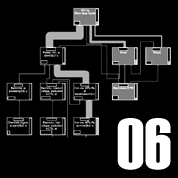Resumo
This research examines how public housing design has been developed to attend the low income population in Sao Paulo, Brazil and how changes in the existing design affect the quality of the dwellings and energy consumption. The hypothesis of this research is that energy efficient architecture concepts applied to the current design practices of public housing in Sao Paulo significantly reduce energy consumption in buildings. In this study, computer simulation is used to evaluate current energy performance of public housing buildings and to simulate the integration of new energy saving features into the current design to assess buildings’ performance. The findings show that energy consumption can be reduced by as much as 54 percent in doing so. This study highlights the numerous opportunities for architects to influence the quality of the design being produced for the less fortunate population in public housing sector in Sao Paulo. This also positively impacts comfort conditions within buildings and most importantly, reduce energy consumption.A PARC Pesquida em Arquitetura e Construção utiliza a licença do Creative Commons (CC), preservando assim, a integridade dos artigos em ambiente de acesso aberto.
Downloads
Não há dados estatísticos.

